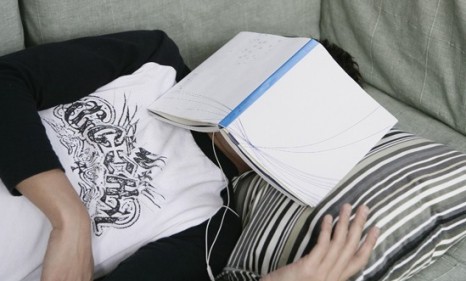Too lazy to work out: Blame your genes?
Canadian researchers believe they have pinpointed a gene that differentiates gym rats from couch potatoes

A free daily email with the biggest news stories of the day – and the best features from TheWeek.com
You are now subscribed
Your newsletter sign-up was successful
Can't get off the couch and to the gym? You may actually have a legitimate excuse. A new Canadian study suggests, ingratiatingly, that your genes might be to blame. Here, a brief guide:
What did the study find exactly?
Scientists at McMaster University found that deleting two muscle genes from mice who were otherwise active runners, easily clocking 5 miles a day, left them struggling to complete a 30-second sprint. The mice immediately lost interest in exercise, says lead researcher Gregory Steinberg. "When we gave them an option to run, they'd sit on the wheel and climb it and rock back and forth."
The Week
Escape your echo chamber. Get the facts behind the news, plus analysis from multiple perspectives.

Sign up for The Week's Free Newsletters
From our morning news briefing to a weekly Good News Newsletter, get the best of The Week delivered directly to your inbox.
From our morning news briefing to a weekly Good News Newsletter, get the best of The Week delivered directly to your inbox.
Which genes were removed?
A set of muscle genes that control an enzyme called AMP-kinase (AMPK), which helps turn food into energy. The more AMPK one generates, the more energy one typically has. Old age, obesity, and inactivity can hinder the production of AMPK.
What does this mean for humans?
Researchers says the genes are "absolutely the same" in humans and mice. Perhaps, points out the International Business Times, but "results of studies on mice are not always reliable when applied to humans." But if these findings do apply to humans, "this can explain why it's so hard to get started with exercising," says Steinberg. "You have the same potential as someone who is active, but you haven't been using it, so it's a 'use it or lose it' phenomenon." Those who aren't active may find exercising difficult as first, but it will become more rewarding as AMPK production kicks in. The more active you are, the more AMPK you have — and the easier it is to work out.
A free daily email with the biggest news stories of the day – and the best features from TheWeek.com
Sources: Daily Mail, International Business Times, The Montreal Gazette